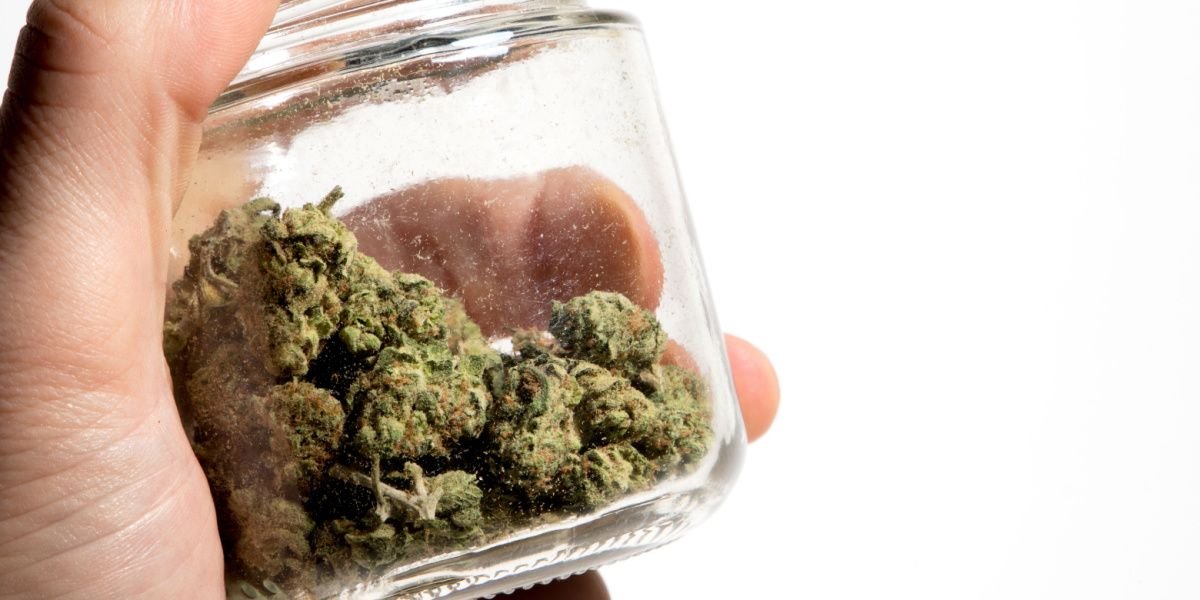Hexahydrocannabinol (HHC) is one of the over one hundred cannabinoid compounds in the cannabis plant. HHC is also produced in laboratory settings but is not yet well-researched and understood. This guide explains what HHC is, its side effects, and potential benefits, comparing it with more prevalent cannabinoids.
What is HHC?
Hexahydrocannabinol (HHC) is a cannabinoid compound extracted from hemp plants, specifically the pollen and seeds, that causes mild euphoria when consumed.[1]
Where does HHC come from?
HHC is found in the seeds and pollen of Cannabis sativa, though it can also be made by THC hydrogenation.[2]
What does HHC feel like?
HHC produces mild euphoric sensations, similar to Delta-8 THC.[5]
Are there any benefits to HHC?
Potential benefits of HHC include mild pain reduction and mood improvement, though risks range from allergic reactions to increased risk of mental health issues.
Is HHC legal?
The legal status of HHC is not yet well understood; some states allow medical-use HHC consumption.[3]
-and-gummies.jpg?v=1722503780)
What is Hexahydrocannabinol (HHC)?
Hexahydrocannabinol (HHC) is a synthetic cannabinoid compound extracted from hemp plants, similar to marijuana, specifically the pollen and seeds.[1] Hemp plants, also known as cannabis sativa, have several types of phytocannabinoids, some of which are also used for treating physical and mental health issues.[2]
The cannabinoids from Cannabis sativa have various forms and structures based on their components. While the hemp plant is the main phytocannabinoid producer, other plants and fungi create similar compounds. Interestingly, the variety of these compounds in cannabis might be explained by their reactions and subsequent changes when exposed to everyday conditions like heat, light, and air.[2]
HHC is a newly discovered phytocannabinoid compound, and there is no thorough research regarding its function, potency, risks, or toxicity. Although the medical community still researches what HHC is, the light-cannabis market has already seen an influx of HHC-based products.[1]
Cannabinoids like HHC and Delta-8 THC may also be produced in the laboratory by altering the structure of another cannabinoid, although neither is FDA-approved.[3] In the case of HHC, the reason is that the lack of investigative data entails that the current legislative space cannot regulate this substance yet.[1]
HHC products are available from some vendors and often come in the form of edibles, tinctures, and vape cartridges.
Does HHC get you high?
There is anecdotal evidence that HHC can produce the euphoric high feeling associated with some cannabis-based products like marijuana. However, there is no scientific consensus because HHC is a poorly researched substance.
The claim that HHC may get people to experience drug-related highs is also based on how HHC is produced. The chemist Roger Adams, who originally discovered HHC, created it by hydrogenating the tetrahydrocannabinol (THC) molecule, marijuana’s main psychoactive ingredient that produces the euphoric sensation.[4]
Although adding hydrogen to the THC molecule alters its physical properties, it may keep the psychoactive effects if the substance is taken in sufficient quantities. Lab-produced HHC has active molecules that bind to the cannabinoid receptors in the brain and inactive molecules that do not. Intense-potency HHC has more active molecules that elicit a stronger form of high.
Commercial HHC-based products combine these active and inactive molecules in different proportions, with the most affordable products having the least noticeable effects. As a result, most anecdotal evidence places HHC’s high intensity between Delta-8 THC and Delta-9 THC.[5]
HHC effects on the body
There is insufficient evidence explaining HHC’s effects on the human body and brain because researchers do not yet understand how HHC behaves once ingested.
Some anecdotal evidence reports similar side effects to Delta-8 THC intake,[5] including increased relaxation, mild pain relief, and moderate euphoric feelings.[6]
The mechanism of action of both HHC and THC in the body entails binding to CB1 receptors in the brain.[7] These receptors are part of the body’s endocannabinoid system (ECS), which regulates mood, appetite, pain, and memory. The HHC attaching to CB1 receptors triggers the release of several neurotransmitters, brain chemicals neurons use to communicate between them.[7]
Altering neural communication translates into mood, perception, pain sensation, and hunger changes. Additionally, this binding results in euphoria, altered time perception, amplified senses (like increased appreciation for music), and other commonly associated effects of being “high.”
HHC also binds to other neural receptors, further influencing this compound’s effects. Regular use of cannabinoids, including HHC, may reduce the brain’s CB1 receptors, causing reduced sensitivity. Consequently, individuals may need more potent HHC or larger quantities to achieve the same euphoric or pain-reducing effects.
Are there any unwanted side effects from HHC?
HHC unwanted side effects are similar to those produced by Delta-8 THC consumption, including:
- Anxiety
- Paranoia
- Memory loss
- Dry mouth
- Red eyes
- Increased appetite
- Sleep disturbances
- Accelerated heart rate
- Impaired coordination
- Delayed reaction[6]
Additionally, the preparation method may add unknown risks caused by the other substances used in creating the HHC-based product and possible improper lab conditions that facilitate contamination.[6]
HHC vs. THC
When discussing HHC vs. THC, it’s worth noting that although HHC and THC are both produced by the Cannabis sativa plant and have a similar chemical structure. HHC may also be derived from THC through hydrogenation. As a result, HHC and THC share similar side effects and benefits.
Additionally, THC has different variations, with Delta-8 THC and Delta-9 THC being the most common. Anecdotal evidence places HHC in the middle between these substances regarding euphoric and pain-relieving effects.
| Comparison | Delta-8 THC | Delta-9 THC | HHC |
| Benefits | Analgesic, anxiety reduction, nausea treatment | Pain relief, anxiety reduction, appetite | Mild pain relief, increased relaxation, mild mood improvements |
| Risks | Mild psychoactive effects, skin irritation, allergic reactions | Psychoactive effects, increased heart rate, dizziness, impaired | Dry mouth, red eyes, increased appetite, sleep disturbances |
| Legal status | Illegal in most states and jurisdictions | Legal in some states and jurisdictions | Not yet regulated |
| Addiction-forming potential | Not considered highly addictive | Considered highly addictive | Not yet researched |
HHC vs. CBD
Cannabidiol (CBD) is another phytocannabinoid found in the hemp plant and the main ingredient in several CBD products. Commercial manufacturers claim CBD is a panacea against ailments ranging from pain to mental health, sleep, and mood disorders.[3] By contrast, HHC offers only mild beneficial effects, supported by anecdotal evidence.
Although CBD is legal at the federal level in the US, the Food and Drug Administration (FDA) has approved just one CBD product with the brand name Epidiolex for treating seizures under medical observation.[3] That is another point of difference because HHC still needs to be regulated, though many HHC-based commercial products exist.
| Comparison | CBD | HHC |
| Benefits | Anti-inflammatory, antioxidant, neuroprotective properties, sleep promotion | Mild pain relief, increased relaxation, mild mood improvements |
| Risks | Fatigue, dry mouth, diarrhea, changes in appetite, potential interactions with certain medic | Dry mouth, red eyes, increased appetite, sleep disturbances |
| Legal status | Legal at a federal level, but not in all US states at state-level | Not yet regulated |
| Addiction-forming potential | Not considered highly addictive | Not yet researched |
Is HHC a scheduled substance?
It still needs to be made clear whether HHC is legal. The 2018 Farm Bill allows the use of hemp-derived cannabanoid products containing below 0.3% THC, and HHC products may respect this requirement. However, some experts suggest that the laboratory modification of the hemp plant goes against this bill, thus making the respective HHC products illegal.[3]
Cannabis is still a Schedule I substance according to the Controlled Substances Act because its addiction potential is considered high. As a result, cannabis distribution remains a federal offense, thus explaining why federal authorities have confiscated Delta-8 THC products in multiple cases.[3][8]
The medical and non-medical cannabis legislation is fluid, undergoing changes at the state level. Several US states have approved medical cannabis laws, including protection against arrest for medical use possession up to specific amounts. Additionally, these states feature patient registries featuring the patients and the conditions for which they take these cannabis-based products.[8]
Are there any risks for HHC?
HHC may feature severe risks similar to those of other intoxicating cannabinoids. These issues include:
- Lower birth weight if HHC is consumed during pregnancy
- Increased risk of accidents and injury in case of operating vehicles or heavy machinery
- Cannabis use disorder following prolonged use, specifically for teenagers
- Affected relationships
- Decreased productivity
- Dizziness
- Syncope or temporary loss of consciousness
- Increased risk of mental illness[3]
Additionally, inhaling cannabis-related products with drug paraphernalia or vaping products may produce lung injury, though the research is still unfolding.[3]



-guide-detail.jpg?v=1722502608)
-guide-detail.jpg?v=1756808755)